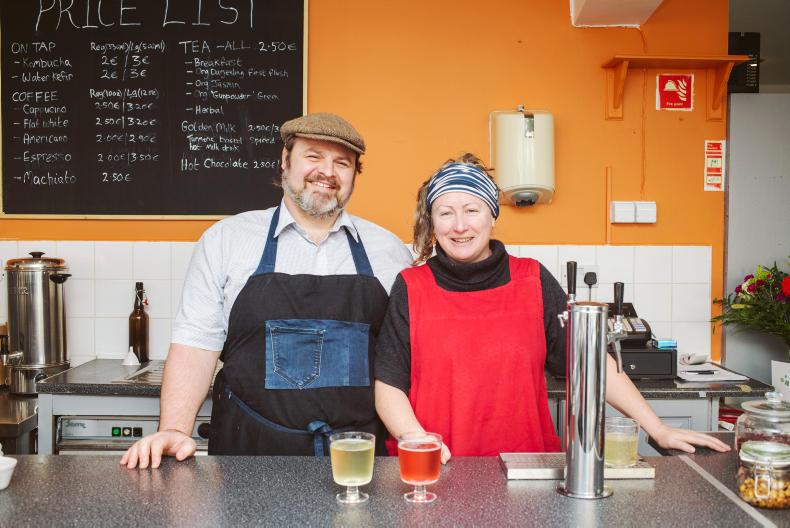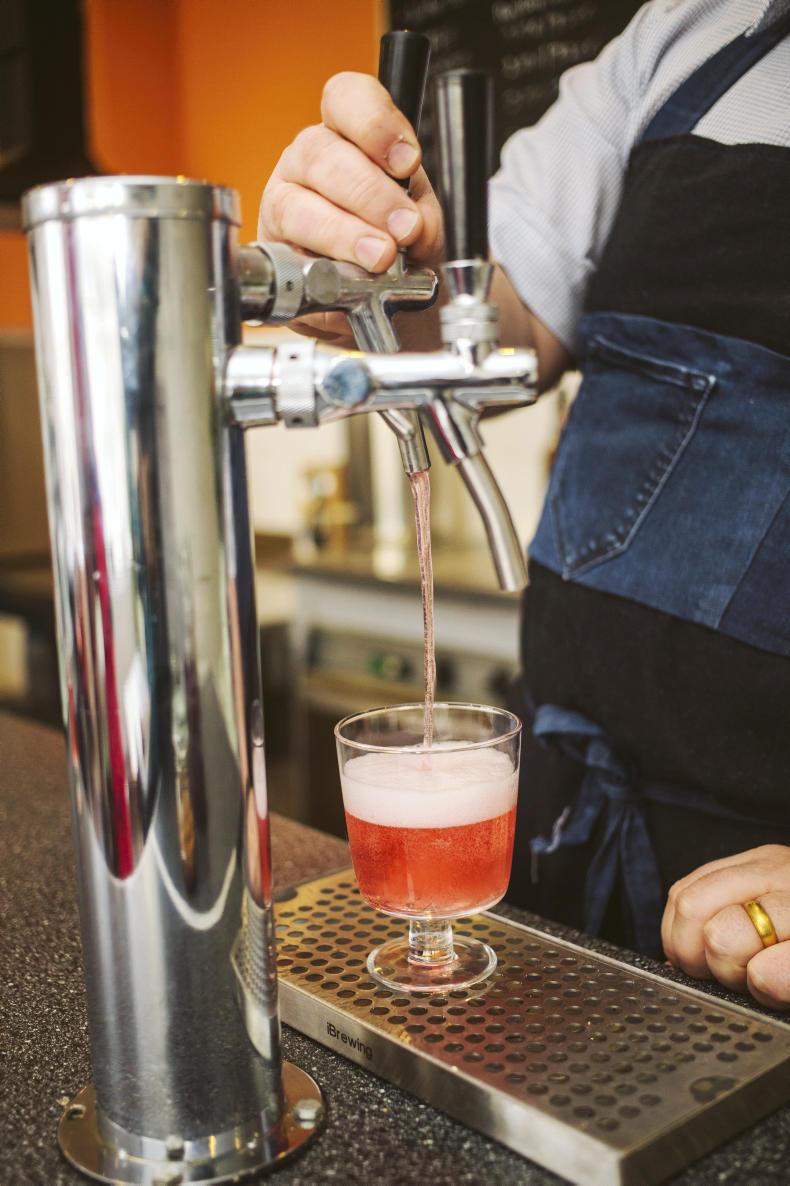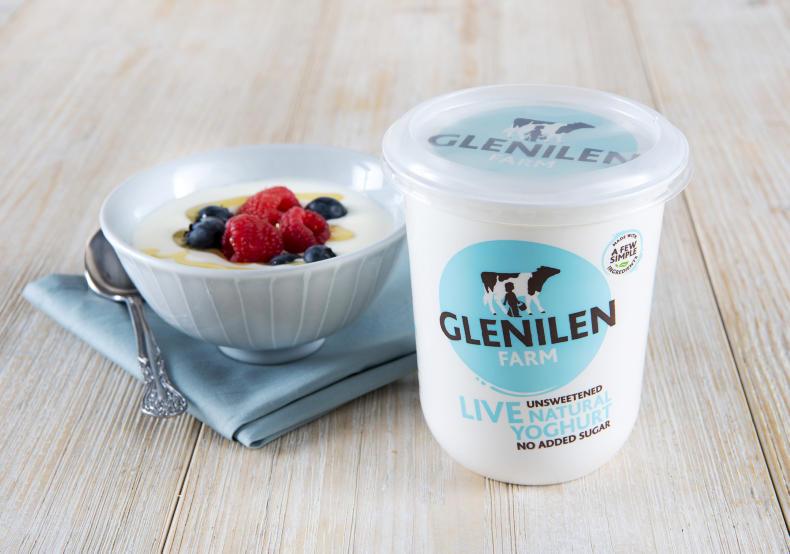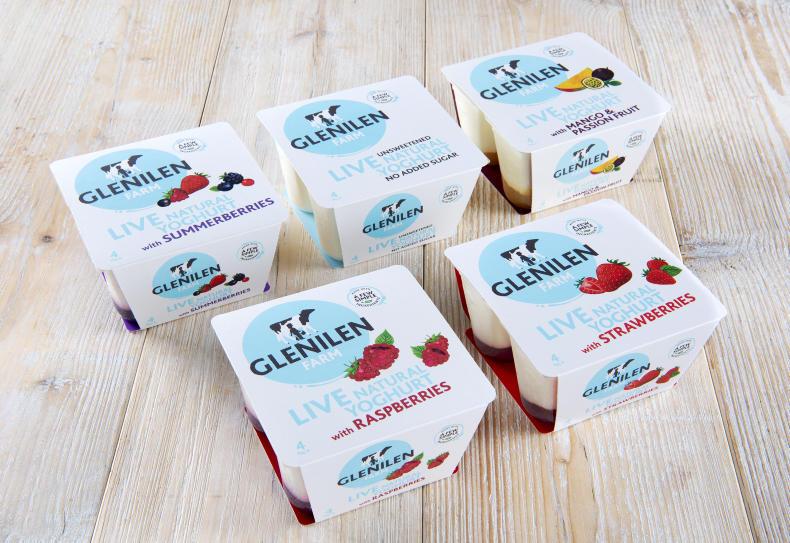Nearly every society on earth has their favourite method of fermentation: in Eastern Europe, sauerkraut is king. In Korea, it’s kimchi. Sourdough bread, cheese, alcohol – even chocolate – are all common examples of foods that are fermented.
Fermentation is a chemical process created by exposing raw ingredients to natural yeasts and bacteria found in the air. The ingredients undergo a process where the yeasts and bacteria consume carbohydrates and convert them into acids or alcohol.
At the turn of the 20th century, we began to make the connection between fermented foods and gut health. Until then, fermentation was merely a way to preserve our foods. Over time, we began to understand how our gut works and how the live bacteria and enzymes in fermented foods could help with digestive ailments.
There are 1-2kg of bacteria in the human intestine
Dr Ted Dinan is a professor of psychology at University College Cork and a founding member of the APC Microbiome Institute. Since the 1980s, he has been studying the effects gut bacteria could have on our mental health. He believes that maintaining a healthy amount of gut bacteria is key to longevity and positive mental health, and that regularly consuming a variety of fermented foods can help achieve these things.
“There are 1-2kg of bacteria in the human intestine – an enormous amount,” he says.
“They produce a lot of molecules that our brains and other organs require. One of our main challenges is keeping that microbiome in a healthy state; it’s like an extra organ.”
Through his many years of research, Dr Dinan has found that the molecules released by our gut which go into our brain are key to sustaining mental health. Where before we were making connections between gut bacteria and gastrointestinal health, Dr Dinan’s research has brought cognitive health and the ageing process into the picture.
When you eat a yoghurt or drink kefir, understand that the bacteria don’t colonise our intestine
“In terms of ageing, we want to maintain diversity in terms of bacteria in our intestine,” he explains. “None of us want to be frail, we all want to live to an old age. [We have found that] taking in a variety of fermented foods as we age staves off frailty.
“These fermented foods – they’re a good source of good bacteria,” he continues. “But when you eat a yoghurt or drink kefir, understand that the bacteria don’t colonise our intestine. They go in and out, but they have a lot of good activity while they’re in there.”
In adults, bacteria from fermented foods may not colonise the intestine but they are capable of producing various molecules and stimulating the immune system in the gut as they pass through. Dinan’s research has shown that most of the neurotransmitters in the human brain can be produced by bacteria.
With so many fermented food products on the market right now, here are a few local Irish producers who are fermenting their products as naturally as possible:

James and Janine from The Good Habit. \ Claire Jeanne Nash
When James Vine-Chatterton first met his now-wife Janine Ludlow, they were both crew on a luxury yacht; sailing the world. It was love at first sight when James met Janine, though it took a bit longer for him to develop a taste for her signature kombucha.
“It eventually grew on me,” says James. “Mostly due to how good it was making me feel.”
Now, years later, the couple have settled in Graiguenamanagh in Co Kilkenny, with their children and are making a living from this tasty fermented drink.

Kombucha is made from sweetened black tea. The drink is fermented with the use of a scoby, which is a gelatinous disc of yeast and bacteria. The bacteria take the sugars and, over a few days, turn them into carbon dioxide.
At the Vine-Chatterton’s new kombucha cafe, The Good Habit in Graiguenamanagh, you can order a kombucha on tap, just like your favourite beer. Janine’s kombuchas (like her hibiscus punch with rosehip), are naturally flavoured with locally sourced, often-foraged ingredients.
The Vine-Chatterton’s also provide kombucha on tap for non-alcoholic events – something for which there is increasing demand.
www.ludlowandvine.ie

Live Yogurts from Glenilen Farm
Long before kombucha and kefir were available, yoghurt was the best source of good bacteria in your diet. At Glenilen Farm in Co Cork, the Kingston family have been making natural yoghurts and yoghurt products for well over 20 years.
Valerie Kingston, who has a degree in agriculture and a background in food research, began using the milk from their Holstein-Friesian herd to make products soon after she married Alan. “It’s very important to eat fermented and cultured products for gut health; particularly if you’ve just finished a round of antibiotics as these will have decimated the healthy bacteria in your gut,” she says. “It’s important to re-introduce some healthy bacteria to your gut and you can do that through eating live, fermented products like milk kefir or our yoghurt.”

Glenilen Farm yoghurts are widely available in all major supermarkets and contain live cultures that will send those positive molecules out to your brain and other organs. “Definitely look for the word ‘live’ when you’re buying a yoghurt,” she says. “We’re about to bring out a 0% fat Greek-style yoghurt. I do feel we need dairy fat in our diet, but the demand is out there for zero percent fat. It’s still very natural; a few simple ingredients. We want to stand over all our products and be proud of them.”
www.glenilenfarm.com

Beet Kvass made by The Cultured Food Co.
You may have seen some of The Cultured Food Company’s product line in your local Supervalu, Dunnes Stores or health food shop. With a range of wild-fermented sauerkrauts and kimchi, the Co Cork company’s product line is well-fermented and vibrantly flavoured. Most recently, they have launched their beet kvass – a salty and sour drink made from fermenting beetroot.
Kvass originates in Eastern Europe, where it has been consumed for thousands of years, though it is traditionally made from fermenting rye bread. The Cultured Food Company founder Hayley Milthorpe says it’s not a familiar product for Irish consumers, but it’s a good one.
“(It’s) something that we have to market heavily,” she says. “People are aware of the health benefits of beetroot and (our kvass) has the benefits of beetroot juice with all of the health benefits of live cultures and enzymes. Many diabetics wouldn’t be able to have beetroot juice, but with the beet kvass the fermentation process has actually broken down the sugars so it is safe for them to consume.”
www.facebook.com/theculturedfoodco
Nearly every society on earth has their favourite method of fermentation: in Eastern Europe, sauerkraut is king. In Korea, it’s kimchi. Sourdough bread, cheese, alcohol – even chocolate – are all common examples of foods that are fermented.
Fermentation is a chemical process created by exposing raw ingredients to natural yeasts and bacteria found in the air. The ingredients undergo a process where the yeasts and bacteria consume carbohydrates and convert them into acids or alcohol.
At the turn of the 20th century, we began to make the connection between fermented foods and gut health. Until then, fermentation was merely a way to preserve our foods. Over time, we began to understand how our gut works and how the live bacteria and enzymes in fermented foods could help with digestive ailments.
There are 1-2kg of bacteria in the human intestine
Dr Ted Dinan is a professor of psychology at University College Cork and a founding member of the APC Microbiome Institute. Since the 1980s, he has been studying the effects gut bacteria could have on our mental health. He believes that maintaining a healthy amount of gut bacteria is key to longevity and positive mental health, and that regularly consuming a variety of fermented foods can help achieve these things.
“There are 1-2kg of bacteria in the human intestine – an enormous amount,” he says.
“They produce a lot of molecules that our brains and other organs require. One of our main challenges is keeping that microbiome in a healthy state; it’s like an extra organ.”
Through his many years of research, Dr Dinan has found that the molecules released by our gut which go into our brain are key to sustaining mental health. Where before we were making connections between gut bacteria and gastrointestinal health, Dr Dinan’s research has brought cognitive health and the ageing process into the picture.
When you eat a yoghurt or drink kefir, understand that the bacteria don’t colonise our intestine
“In terms of ageing, we want to maintain diversity in terms of bacteria in our intestine,” he explains. “None of us want to be frail, we all want to live to an old age. [We have found that] taking in a variety of fermented foods as we age staves off frailty.
“These fermented foods – they’re a good source of good bacteria,” he continues. “But when you eat a yoghurt or drink kefir, understand that the bacteria don’t colonise our intestine. They go in and out, but they have a lot of good activity while they’re in there.”
In adults, bacteria from fermented foods may not colonise the intestine but they are capable of producing various molecules and stimulating the immune system in the gut as they pass through. Dinan’s research has shown that most of the neurotransmitters in the human brain can be produced by bacteria.
With so many fermented food products on the market right now, here are a few local Irish producers who are fermenting their products as naturally as possible:

James and Janine from The Good Habit. \ Claire Jeanne Nash
When James Vine-Chatterton first met his now-wife Janine Ludlow, they were both crew on a luxury yacht; sailing the world. It was love at first sight when James met Janine, though it took a bit longer for him to develop a taste for her signature kombucha.
“It eventually grew on me,” says James. “Mostly due to how good it was making me feel.”
Now, years later, the couple have settled in Graiguenamanagh in Co Kilkenny, with their children and are making a living from this tasty fermented drink.

Kombucha is made from sweetened black tea. The drink is fermented with the use of a scoby, which is a gelatinous disc of yeast and bacteria. The bacteria take the sugars and, over a few days, turn them into carbon dioxide.
At the Vine-Chatterton’s new kombucha cafe, The Good Habit in Graiguenamanagh, you can order a kombucha on tap, just like your favourite beer. Janine’s kombuchas (like her hibiscus punch with rosehip), are naturally flavoured with locally sourced, often-foraged ingredients.
The Vine-Chatterton’s also provide kombucha on tap for non-alcoholic events – something for which there is increasing demand.
www.ludlowandvine.ie

Live Yogurts from Glenilen Farm
Long before kombucha and kefir were available, yoghurt was the best source of good bacteria in your diet. At Glenilen Farm in Co Cork, the Kingston family have been making natural yoghurts and yoghurt products for well over 20 years.
Valerie Kingston, who has a degree in agriculture and a background in food research, began using the milk from their Holstein-Friesian herd to make products soon after she married Alan. “It’s very important to eat fermented and cultured products for gut health; particularly if you’ve just finished a round of antibiotics as these will have decimated the healthy bacteria in your gut,” she says. “It’s important to re-introduce some healthy bacteria to your gut and you can do that through eating live, fermented products like milk kefir or our yoghurt.”

Glenilen Farm yoghurts are widely available in all major supermarkets and contain live cultures that will send those positive molecules out to your brain and other organs. “Definitely look for the word ‘live’ when you’re buying a yoghurt,” she says. “We’re about to bring out a 0% fat Greek-style yoghurt. I do feel we need dairy fat in our diet, but the demand is out there for zero percent fat. It’s still very natural; a few simple ingredients. We want to stand over all our products and be proud of them.”
www.glenilenfarm.com

Beet Kvass made by The Cultured Food Co.
You may have seen some of The Cultured Food Company’s product line in your local Supervalu, Dunnes Stores or health food shop. With a range of wild-fermented sauerkrauts and kimchi, the Co Cork company’s product line is well-fermented and vibrantly flavoured. Most recently, they have launched their beet kvass – a salty and sour drink made from fermenting beetroot.
Kvass originates in Eastern Europe, where it has been consumed for thousands of years, though it is traditionally made from fermenting rye bread. The Cultured Food Company founder Hayley Milthorpe says it’s not a familiar product for Irish consumers, but it’s a good one.
“(It’s) something that we have to market heavily,” she says. “People are aware of the health benefits of beetroot and (our kvass) has the benefits of beetroot juice with all of the health benefits of live cultures and enzymes. Many diabetics wouldn’t be able to have beetroot juice, but with the beet kvass the fermentation process has actually broken down the sugars so it is safe for them to consume.”
www.facebook.com/theculturedfoodco











 This is a subscriber-only article
This is a subscriber-only article










SHARING OPTIONS: